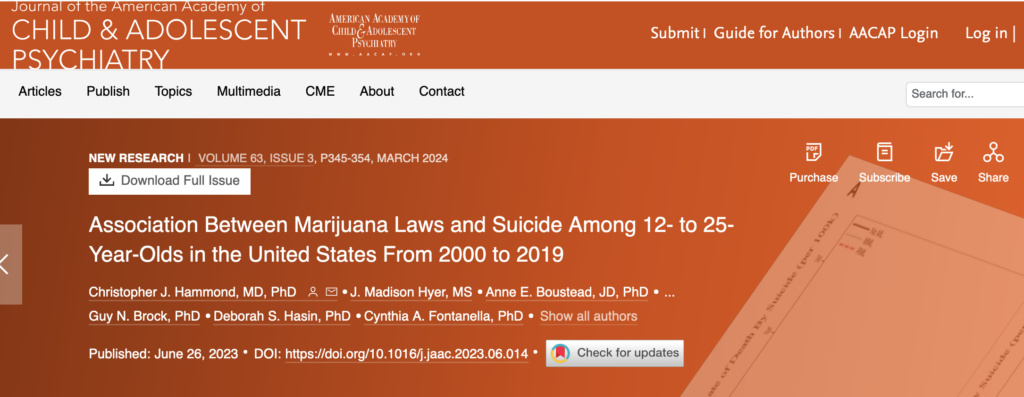
In the United States, suicide rates have increased by around 36% within the past two decades. And researchers have linked marijuana use with suicidal ideations, plans, and attempts.
It’s no surprise, then, that researchers are now looking into whether changing marijuana policies are influencing suicide rates, particularly in teens.
In March 2024, a study was published exploring this very topic in the peer-reviewed Journal of the American Academy of Child & Adolescent Psychiatry. Eight authors contributed to the study—including Christopher J. Hammond, an assistant professor at Johns Hopkins University and the director of the university’s Center for Adolescent Substance Abuse and Prevention, as well as J. Madison Hyer, principal biostatistician at the Center for Biostatistics at The Ohio State Wexner Medical Center.
The authors pulled nearly 20 years of data from records on all deaths occurring in the United States, from 2000–2019. These were compiled by state vital records offices and the National Center for Health Statistics. Examining the death records of people aged 12–25, the authors looked for associations between medical marijuana legalization, recreational marijuana legalization, and suicide-related deaths. What they found was that in states where legalization had occurred, there were higher suicide-related deaths—particularly for female youth, and for youth of both sexes aged 14–16.
The authors, who are calling for more related studies and for their work to inform legislative reform, aren’t the only ones highlighting the dangers of cannabis. Among many other medical professionals, Dr. Frances R. Levin—director of Columbia University’s Division of Substance Use Disorders—has also noted the strong adverse effects of cannabis on teens. “Having depression or suicidality,” says Dr. Levin, “may drive teens to use cannabis as a way to relieve their suffering.” But tragically, using cannabis “likely worsens depressive and suicidal symptoms.”
To read about the study in more detail, visit this page.

